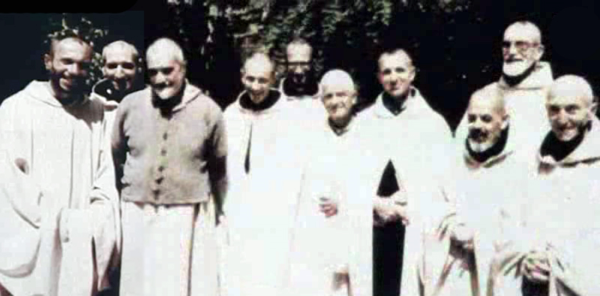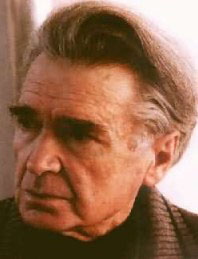 The Greeks used three words to designate love: éros, carnal love, philia, friendship, and agapê, accomplished and mature love.
The Greeks used three words to designate love: éros, carnal love, philia, friendship, and agapê, accomplished and mature love.
Is love only there to comfort us? Shouldn't we seek to give meaning to love as to every event in life? Only meaning saves the human condition. The meaning… The big question. The inevitable question. Nothing is worth living in the absence of meaning. Meaning is man's big question, especially since he understands nothing about it and has no control over it. As often the man controls all the less that he screams to believe the contrary. A love whose meaning is absent will remain an eros. It is possible to answer that eros also gives meaning: the caresses, the kisses, the bodies that fit together are a discovery of the other. If the Greek eros is most often a matter of abduction, of possession, it would be wrong to sum it up there. The boundaries between the three loves can be fine. Our time likes to relativize these borders. Transgression awaits the slightest of our steps; or our missteps.
The sense of love surpasses us, and elevates us. God gives us His son and causes him to die on the cross for the sole purpose of giving meaning to our lives. He eradicates the sin by bringing it to light. It designates love as the only alternative to evil. And we must also remember Saint Paul:
When I would speak in tongues, that of men and that of angels, if I lack love, I am a resounding metal, a resounding cymbal.
When I have the gift of prophecy, the science of all mysteries and all knowledge, when I have the most total faith, that which moves mountains, if I lack love, I am nothing .
When I would distribute all my goods to the hungry, when I would deliver my body to the flames, if I lack love, I gain nothing.
Love takes patience, love is helpful, it doesn't be jealous, it doesn't show off, it doesn't get puffed up, it doesn't do anything ugly, it doesn't seek its interest, it doesn't does not irritate, he does not harbor grudges, he does not rejoice in injustice, but he finds joy in the truth.
He excuses everything, he believes everything, he hopes for everything, he endures everything.
Love never goes away.
The prophecies? They will be abolished.
Languages ? They will end.
The knowledge ? It will be abolished.
For our knowledge is limited and our prophecy is limited. But when perfection comes, what is limited will be abolished.
When I was a child, I spoke like a child, I thought like a child, I reasoned like a child. Having become a man, I put an end to what was proper to the child.
Now we see as in a mirror and in a confused way, but then it will be face to face.
Now my knowledge is limited, but then I will know as I am known.
So now these three remain, faith, hope and love, but love is the greatest.(1)
We see that agape sits at the top of love. Agape is this ultimate end, as the true meaning of love. Reading Saint Paul, we also realize that friendship is entirely contained in love. Philia can be thought of alone, but its Christian purpose is to become an agape. We also understand that his failure will be not to succeed in this transformation. Imagine a philia between a man and a woman: there is always a risk of seduction. What is a philia abandoning itself in eros?
Finally, it should be noted that the agapê is a love devoid of seduction. He does not use "stuff", fireworks. Obviously these are left to the prince of this world.
A new friendship is a revealed world that extends to our feet. What reflex do we have? Facing a world that stretches out at our feet. Are we responsible for it ( respondere , do we answer for it)? Did we do anything to deserve this new love? No, we haven't done anything. So little meaning has come out of our daily gestures. Our first instinct is often to trample this world under foot, because immediately in the face of beauty we think of appropriating it. Here is the man. What is beautiful, what is better, what is beyond us, must belong to us. Not God. No, not God. Because modern man has stopped believing in God. Too big, too strong, no time for this crap he can't make his own. What exceeds it deserves only possession or contempt. We must always go faster. We do not have time. If one cannot possess, if one cannot enjoy, one despises. It is therefore easy to understand the popularity of eros.
All creatures lack something, and not just not being a creator.
To those who are carnal, we know, there is a lack of pure beings.
But to those who are pure, it must be known, they lack carnality.(2)
So this world knocking at the door? If he gives himself, we dominate him. If it gives itself, we possess it. This sums up our sufficiency vis-à-vis the Other. Because there is no place more egalitarian than love. Love is truth and everyone is equal in the face of truth.
Many friendships fail after a while. In the majority of cases, this failure reveals itself as soon as one or both parties take pride in themselves. As soon as one or both parties want to possess, or comfort themselves in a deaf feeling of superiority. As soon as one or both parties adopt a paternalistic position, there is no more listening. As soon as there can no longer be any real listening, as soon as it is subject to a value judgment, an invisible and unspoken, but full and complete, hierarchy sets in. There is no longer the minimum required to speak and hear each other. The word no longer makes sense.
1- We also know that in this offering of Saint Paul we can replace the word love with the name of Jesus. We will enjoy reciting these stanzas in this way and becoming impregnated with them.
Translation of the author of Saint Paul's First Epistle to the Corinthians (1 Cor 13, 1).
2- Péguy, The Porch of the Mystery of the Second Virtue.






